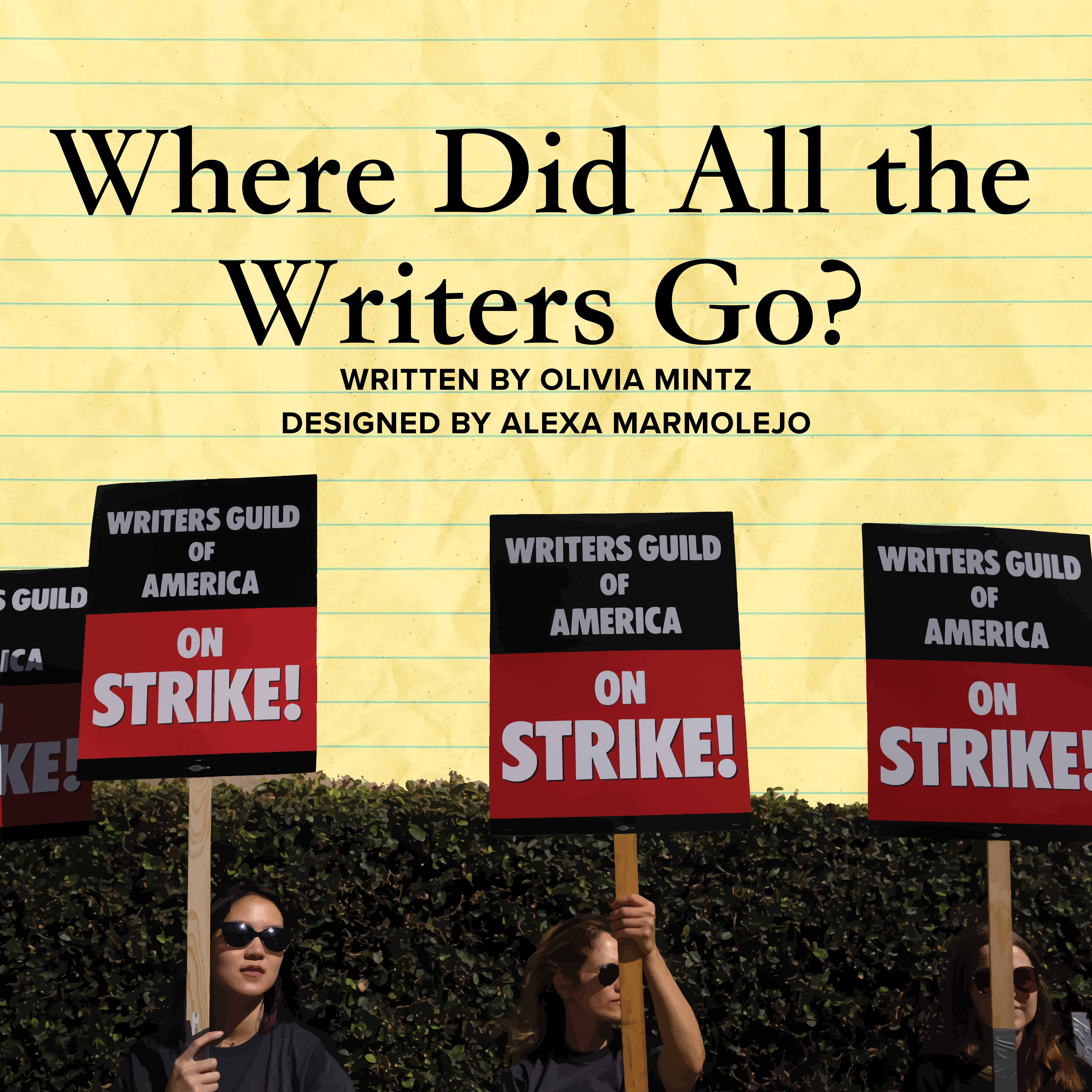
On May 2 at 12:01 a.m. the Writer’s Guild of America, or WGA, went on strike and has remained so ever since. The WGA, a union of over 11,000 writers in television, film, radio and other outlets, was striking to demand stable wages and fair contracts.
Six weeks prior to the strike, the WGA Negotiating Committee spent time discussing business practices with streaming services and production studios like Netflix, Disney and Amazon that work in association with the Alliance of Motion Picture and Television Producers, or AMPTP. The negotiations primarily consisted of proposals to establish a minimum payment for residuals and streaming features, but also considered healthcare for employees and the role of AI in the writer’s room. Many of the demands that the Negotiating Committee brought up were rejected with no counteroffers. As a result of the AMPTP’s unwillingness to appeal to the WGA’s demands, the union decided to go on strike as soon as the WGA 2023 Contract expired.
Writers across the country are experiencing the immediate effects of the strike and many others working in the entertainment industry are also getting involved. Because writers are no longer working on television series and movies, media production is slowing down. The Screen Actors Guild – American Federation of Television and Radio Artists, or SAG-AFTRA, has also gone on strike as of July 14, which was also shortly after their contract with AMPTP expired. Though SAG-AFTRA has similar requests to the WGA about wages and AI involvement, their members had more specific demands, such as creating better working conditions for background actors, hiring hair and makeup artists that cater to diverse hair textures and skin tones and setting standards for auditions.
Considering that two major entertainment-based unions are striking, the industry is undergoing a major change. This is the first time in 63 years that both writers and actors are standing on the picket lines together. The strike is especially important for writers because in the past there have not been many regulations on AI and streaming services, given their recent surges in popularity and use.
With this major event, popular series that are set to have more seasons like Abbott Elementary, Euphoria and Stranger Things have halted production due to the lack of writers. Late-night shows have been affected instantly as these shows operate on a timely basis. Additionally, social media creators whose content focuses on television and media are refraining from promoting new productions in solidarity with the writers.
After almost five months of striking, the WGA reached a tentative agreement with the AMPTP. The three-year contract has yet to be ratified, but the strike has ended as of 12:01 a.m. Sept. 27. The new agreement outlined by the WGA Negotiation Committee plans to agree to the contract because it increases their pay and includes better healthcare benefits. Writers can now return to the writer’s room.